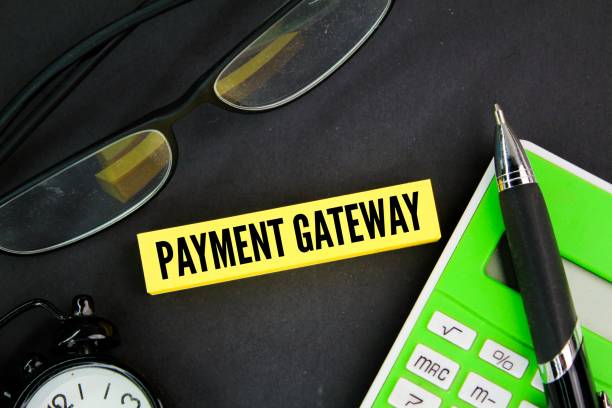As a small business in 2025, choosing the right payment gateway is not only crucial for secure and efficient payments but also for selecting trusted platforms that will encourage shoppers to make payments. Some payment gateways have gain wide acceptance and rank high in features that make them adopted by many.
With more consumers embracing digital payments and expecting fast, secure, and seamless transactions, your choice of a payment gateway can either build trust or drive potential buyers away. The right gateway offers more than just processing payments; it ensures data security, a smooth user experience, and reliable integrations with your existing systems.
In this article, we will explore the top five payment gateways for small businesses in 2025 and highlight the essential features every payment gateway should have. Let us go!
Table of Contents
Essential Payment Gateway Features
• Handling Payment Data:
The core function of any payment gateway is to handle payment data efficiently and securely. This includes capturing payment information, encrypting sensitive data, and transmitting it to the payment processor for approval. A robust gateway ensures that data flows smoothly without glitches or unnecessary delays.
For small businesses, it is important to choose a gateway with high transaction success rates and low error rates. Payment failures not only frustrate customers but can also lead to lost sales and damaged reputation. Look for gateways with advanced encryption standards, tokenization, and PCI DSS compliance to keep payment data secure.
• Customer Interface:
The customer interface plays a huge role in the user experience. A clean, intuitive, and responsive payment page encourages customers to complete their transactions without hesitation. The payment gateway should support multiple payment methods like credit cards, digital wallets, and bank transfers.
Additionally, customizable checkout options enhance your brand experience.
A seamless interface integrated within your website — without redirecting users to a third-party page — boosts trust and reduces cart abandonment. Ensure your gateway supports mobile-friendly designs, given the rise of mobile shopping.
• Payment Data Send And Receive:
Efficient data transmission between your website, the gateway, and banks ensures quick transaction processing. A laggy or error-prone system can lead to payment delays, declined transactions, and frustrated customers.
The best gateways offer real-time payment processing and instant transaction confirmations. Look for platforms with minimal downtime, fast response times, and automated payment status updates to keep both you and your customers informed at every step.
• Data Security:
In 2025, cybersecurity threats remain a top concern for online businesses, a good point of reference is the recent Bybit Hack. A good payment gateway must offer robust security features to protect sensitive customer data and prevent fraud. This includes end-to-end encryption, tokenization, and SSL certificates.
Many leading gateways also offer fraud detection tools and chargeback management systems to safeguard your revenue. Two-factor authentication (2FA) and CVV verification add extra layers of protection, making your platform safer for buyers.
• Integrations:
Your payment gateway should seamlessly integrate with your existing tech stack including e-commerce platforms, accounting software, and CRM systems. This helps automate data flow, reduce manual errors, and simplify financial management.
Popular gateways often offer plug-and-play integrations with platforms like Shopify, WooCommerce, and Squarespace. They also provide API support for custom connections, giving you flexibility in creating a tailored payment experience for your business.
5 Payment Gateways For Small Business Owners
1. PayPal:
PayPal remains one of the most trusted and widely used payment gateways globally. Its user-friendly interface, broad acceptance, and robust security features make it an ideal choice for small businesses. With support for international transactions and multiple currencies, PayPal helps you reach a global audience.
Key Features:
• Wide Acceptance: Used by millions of businesses worldwide.
• Multiple Payment Methods: Supports credit cards, debit cards, and PayPal balances.
• Buyer and Seller Protection: Reduces the risk of chargebacks and fraud.
• Easy Integration: Works seamlessly with major e-commerce platforms.
Pricing:
• Transaction Fee: 2.9% + $0.30 per transaction (US)
• International Fee: Additional 1.5% for cross-border payments
2. Payoneer:
Payoneer is perfect for freelancers and international businesses, offering low-cost global payments and multi-currency support. It simplifies cross-border transactions, making it easier to receive payments from international clients.
Key Features:
• Multi-Currency Support: Accepts payments in multiple currencies.
• Low Conversion Fees: Reduces the cost of international transactions.
• Integrated Marketplace Payments: Works with Amazon, Fiverr, and other marketplaces.
• Prepaid MasterCard: Access funds instantly with a physical or virtual card.
Pricing:
• Bank Transfer Fee: 1% per transaction.
• Currency Conversion: Up to 2% above market rates.
3. Shopify Payments:
For Shopify store owners, Shopify Payments offers cost savings and seamless integration, eliminating the need for third-party processors. It simplifies transaction management and reduces fees.
Key Features:
• Zero Transaction Fees: When using Shopify Payments directly.
• Multi-Currency Support: Automatically adjusts for customer locations.
• Built-In Fraud Analysis: Identifies suspicious activity before processing payments.
• Fast Payouts: Receive funds within 2–3 business days.
Pricing:
• Transaction Fee: 2.9% + $0.30 per online transaction (Basic Shopify)
• In-Person Sales: 2.7% + $0.10 per swipe.
4. Square:
Square is ideal for small businesses with both online and physical stores, offering a unified payment system and affordable pricing. Its free point-of-sale (POS) system simplifies in-person transactions.
Key Features:
• No Monthly Fees: Only pay for transactions.
• Free POS System: Manage in-person and online sales from one platform.
• Contactless Payments: Supports Apple Pay, Google Pay, and NFC cards.
• Instant Deposits: Access funds immediately for a small fee.
Pricing:
• Online Transactions: 2.9% + $0.30 per transaction.
• In-Person Sales: 2.6% + $0.10 per swipe.
5. Stripe:
Stripe is known for its powerful API, allowing businesses to customize their payment flows. It supports recurring billing, subscriptions, and international transactions with ease.
Key Features:
• Advanced Security: End-to-end encryption and fraud protection.
• Flexible API: Build tailored payment solutions.
• Global Reach: Supports over 135 currencies and multiple payment methods.
• Subscription Management: Perfect for businesses with recurring revenue models.
Pricing:
• Transaction Fee: 2.9% + $0.30 per transaction.
• International Payments: Additional 1% for currency conversion.
Conclusion
Choosing the right payment gateway in 2025 means balancing security, cost-effectiveness, and user experience. PayPal and Stripe offer global reach and developer-friendly tools, while Square provides a unified solution for online and in-person sales. Shopify Payments is a cost-effective choice for Shopify users, and Payoneer excels at cross-border transactions.
Each of these platforms brings unique strengths, so your choice should align with your business model, target market, and technical needs. By selecting a reliable, flexible, and feature-rich gateway, you will ensure smooth transactions, boost customer satisfaction, and drive your business growth.





